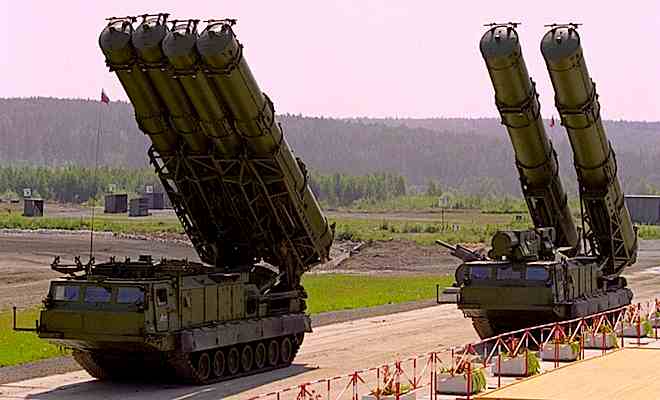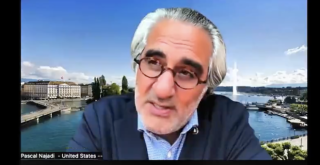 Photo: Neo.org
Photo: Neo.org
Featured
Putin and Iran Do a ‘Game Changer’
byNEO.org:
The dynamics of Russian foreign policy since the USA has forced a de facto declaration of war via financial and economic sanctions against Russia is impressive to put it mildly. Whether it will suffice to break the economic siege of Washington and open the way for a genuine global economic alternative to the bankrupt US Dollar System is not yet clear. What is clear is that Vladimir Putin and the faction of industrial barons who have decided to back him are not cowering in fear. The latest example is the recent visit of the Russian Defense Minister to Teheran, to do major military cooperation deals with Iran. The implications for both countries as well as the future of Eurasia are potentially huge.
On January 20 in Teheran, Russia and Iran signed an agreement on military cooperation. Russian Defense Minister Sergei Shoigu and Iranian Defense and Armed Forces Logistics Minister Hossein Dehghan signed the new agreement. Remarking on its significance, Shoigu stated, “A theoretic base of cooperation in the military sphere has been created.” He added that the two countries have agreed on “bilateral cooperation in practical regards and to promote an increase in the military capabilities of the armed forces of our countries.” The two also agreed on “the importance of the need to develop Russia and Iran’s cooperation in the joint struggle against meddling in the affairs of the region by external forces that are not part of it was framed,” Iranian Defense Minister Dehghan declared. To make sure no one mistook who he meant, he added that the reason for aggravation in the situation of the region was a US policy that “meddles in the domestic affairs of other countries.”
The coming closer of the two Eurasian countries, both bordering the strategic Caspian Sea, has enormous implications for global geopolitics. The Obama Administration has tried to woo Iran in a stick (economic sanctions) and carrot (promise of lifting same) manner over the past eighteen months to get Teheran to agree major concessions on her nuclear program. Until recently, despite US sanctions over Ukraine, Russia was willing to show “good faith” to Washington by participating in the 5-1 nuclear negotiations with Iran to persuade Teheran to make major concessions on its nuclear program, one where Russia built the just-completed Bushehr nuclear power plant, the first in the Middle East. That phase is clearly over and Iran’s hand in the negotiations with the US, France, Germany, UK has just got stronger, sanctions or not.
Iran, Syria and Pipeline Wars
For Washington, the nuclear pressure is part of an attempt to force Iran to abandon her ally, Bashar al-Assad in Syria, in order to open the way for Qatar, a close ally of Saudi Arabia and site of the world’s largest natural gas field in the Persian Gulf. Qatar, which has been the prime funder of the US and Israeli-trained ISIS terrorists in Syria and Iraq, wants to export its gas to the EU via Syria and Turkey.
Iran, which holds the other part of that huge Persian Gulf gas field, North Pars, in its offshore waters, signed a strategic pipeline deal with Assad and Iraq in June 2011 to build a new Iran-Iraq-Syria gas pipeline for 1500 kilometers from their chunk of the world’s largest gas field going from Asaluyeh, the Iranian port near the South Pars gas field, to Damascus in Syria. From there the pipeline would go via Lebanon to the eastern Mediterranean and on to the huge EU gas market. They named it the “Islamic Pipeline.”
The volume of Iran gas would be modest compared to Russia’s Gazprom original South Stream pipeline. An estimated 20 billion cubic meters per year would remain after local consumption requirements (pre-Syria war) from that Iran-Iraq-Syria pipeline, for Europe, compared to the 63 billion from the South Stream.
Qatar would be the loser. Qatar, a Sunni Islam country that finances ISIS as well as the Muslim Brotherhood and other such charming Jihadists, doesn’t like the idea. Qatar approached Assad in 2009 to propose a Qatar-Syria pipeline to the EU via Turkey but was turned down flat. Assad said his relations with Russia and Gazprom were more important. It was just at the time of the Iran-Iraq-Syria Islamic Pipeline signing in June 2011 that Washington, Saudi Arabia and Qatar decided to launch a full-scale war to topple Assad and replace him with a Sunni regime friendly to Qatar and Washington. Hardly a coincidence.

















